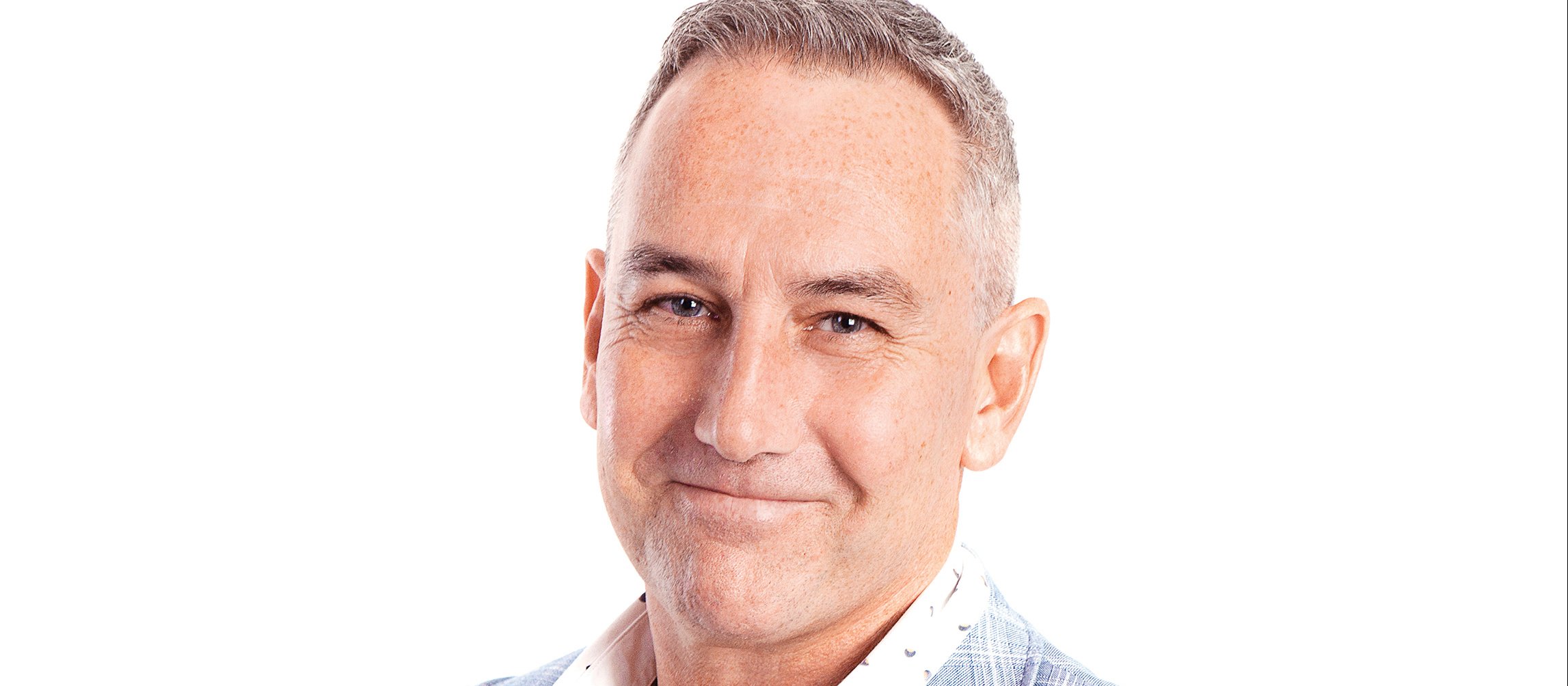Respiratory physician Lutz Beckert considers chronic obstructive pulmonary disease management, including the prevention of COPD, the importance of smoking cessation and pulmonary rehabilitation, and the lifesaving potential of addressing treatable traits. He also discusses the logic of inhaler therapy, moving from single therapy to dual and triple therapy when indicated, as well as other aspects of management
No big boost, but other funding seen as positive for mental health overall
No big boost, but other funding seen as positive for mental health overall

“Mental health is about much more than delivering services”
There was no big boost to mental health services in the Budget, but the funding of a number of other initiatives will have a positive effect on large swathes of the nation, says Mental Health Foundation chief executive Shaun Robinson.
The major mental health spending in this year’s Budget, announced last Thursday by finance minister Grant Robertson, is $10 million towards the mental health and wellbeing response for those affected by the North Island weather events.
In particular, that funding allocates $3.747 million to expand the Mana Ake – Stronger for Tomorrow programme for primary and intermediate school-aged students into the Hawke’s Bay and Tairāwhiti.
Otherwise, the mental health benefits will be gained through other areas, says Mr Robinson.
“Mental health is impacted by a variety of social conditions and social factors that cause trauma and stress for people so there are some positive things in there [the Budget],” he tells New Zealand Doctor Rata Aotearoa.
READ MORE FROM OUR BUDGET COVERAGE:
He pointed to the scrapping of the $5 prescription charge as a positive, saying it would reduce barriers to accessing healthcare. “That’s got to be good.”
Mr Robinson highlighted a number of areas where increased spending and focus would have a positive impact on people’s mental health. His views are included:
-
$64.4 million to support wāhine hapū and their pēpi in the first 1000 days – this should, if used well, have a positive impact because post-natal depression has been a big factor, unaddressed for some time.
-
Funding for the disabled community and their families, including for getting disabled people into work and helping them study. “People who experience disabilities also experience very high levels of mental distress, because they’re so disadvantaged, and when people are multiply disadvantaged – by racism as well – these are all things that will chip away at the drivers of poor mental health.”
-
Funding for a range of family and sexual violence prevention services.
-
$7 million for a dedicated psychosocial court support service for children and young people who are complainants or witnesses in sexual violence proceedings – will help the “emotional and psychological wellbeing of people who participate in those processes”.
-
$3.1 billion total capital investment to build 3000 new public housing places by 30 June 2025, and $200 million to increase supply of Māori housing and repair Māori properties.
-
Support for Māori and Pasifika – including $10.4 million for te reo Māori revitalisation and $13.3 million for Pacific languages resources, funding towards key Māori cultural institutions: “While many people may not see the link to mental health, actually there’s a very strong link – people who have a strong sense of their cultural identity and a strong sense of who they are, and being valued in who they are, are extremely resilient in terms of their mental health and wellbeing.”
Mental health is about much more than delivering services, says Mr Robinson, adding “across the Budget I think there’s a lot to be supportive of”.
However, still not provided is the sort of strategic investment pathway to support mental health, he says.
“The Pae Ora legislation, and the new health structures that were introduced by that, is supposed to be leading us towards that with the New Zealand Health Plan. It’s a long, convoluted road to get there, and we do feel that progress could be made, particularly around mental health in that space coming out of the inquiry into mental health and addictions.
“There’s a lot of good things that are happening, there’s a hang of a lot more that needs to be done, and we need to take a really systematic and strategic view of improving mental health, improving health, improving equity within New Zealand.”
Overall, he says it was a decent Budget, but in the context that “mental health has always been neglected”.
“We need much, much more and a really strategic approach to addressing mental health, so there are some good things here. Is it the ultimate solution? No, it’s not.”




![Barbara Fountain, editor of New Zealand Doctor Rata Aotearoa, and Paul Hutchison, GP and senior medical clinician at Tāmaki Health [Image: Simon Maude]](/sites/default/files/styles/thumbnail_cropped_100/public/2025-03/Barbara%20Fountain%2C%20editor%20of%20New%20Zealand%20Doctor%20Rata%20Aotearoa%2C%20and%20Paul%20Hutchison%2C%20GP%20and%20senior%20medical%20clinician%20at%20T%C4%81maki%20Health%20CR%20Simon%20Maude.jpg?itok=-HbQ1EYA)
![Lori Peters, NP and advanced health improvement practitioner at Mahitahi Hauora, and Jasper Nacilla, NP at The Terrace Medical Centre in Wellington [Image: Simon Maude]](/sites/default/files/styles/thumbnail_cropped_100/public/2025-03/2.%20Lori%20Peters%2C%20NP%20and%20advanced%20HIP%20at%20Mahitahi%20Hauora%2C%20and%20Jasper%20Nacilla%2C%20NP%20at%20The%20Terrace%20Medical%20Centre%20in%20Wellington%20CR%20Simon%20Maude.jpg?itok=sUfbsSF1)
![Ministry of Social Development health and disability coordinator Liz Williams, regional health advisors Mary Mojel and Larah Takarangi, and health and disability coordinators Rebecca Staunton and Myint Than Htut [Image: Simon Maude]](/sites/default/files/styles/thumbnail_cropped_100/public/2025-03/3.%20Ministry%20of%20Social%20Development%27s%20Liz%20Williams%2C%20Mary%20Mojel%2C%20Larah%20Takarangi%2C%20Rebecca%20Staunton%20and%20Myint%20Than%20Htut%20CR%20Simon%20Maude.jpg?itok=9ceOujzC)
![Locum GP Helen Fisher, with Te Kuiti Medical Centre NP Bridget Woodney [Image: Simon Maude]](/sites/default/files/styles/thumbnail_cropped_100/public/2025-03/4.%20Locum%20GP%20Helen%20Fisher%2C%20with%20Te%20Kuiti%20Medical%20Centre%20NP%20Bridget%20Woodney%20CR%20Simon%20Maude.jpg?itok=TJeODetm)
![Ruby Faulkner, GPEP2, with David Small, GPEP3 from The Doctors Greenmeadows in Napier [Image: Simon Maude]](/sites/default/files/styles/thumbnail_cropped_100/public/2025-03/5.%20Ruby%20Faulkner%2C%20GPEP2%2C%20with%20David%20Small%2C%20GPEP3%20from%20The%20Doctors%20Greenmeadows%20in%20Napier%20CR%20Simon%20Maude.jpg?itok=B0u4wsIs)
![Rochelle Langton and Libby Thomas, marketing advisors at the Medical Protection Society [Image: Simon Maude]](/sites/default/files/styles/thumbnail_cropped_100/public/2025-03/6.%20Rochelle%20Langton%20and%20Libby%20Thomas%2C%20marketing%20advisors%20at%20the%20Medical%20Protection%20Society%20CR%20Simon%20Maude.jpg?itok=r52_Cf74)
![Specialist GP Lucy Gibberd, medical advisor at MPS, and Zara Bolam, urgent-care specialist at The Nest Health Centre in Inglewood [Image: Simon Maude]](/sites/default/files/styles/thumbnail_cropped_100/public/2025-03/7.%20Specialist%20GP%20Lucy%20Gibberd%2C%20medical%20advisor%20at%20MPS%2C%20and%20Zara%20Bolam%2C%20urgent-care%20specialist%20at%20The%20Nest%20Health%20Centre%20in%20Inglewood%20CR%20Simon%20Maude.jpg?itok=z8eVoBU3)
![Olivia Blackmore and Trudee Sharp, NPs at Gore Health Centre, and Gaylene Hastie, NP at Queenstown Medical Centre [Image: Simon Maude]](/sites/default/files/styles/thumbnail_cropped_100/public/2025-03/8.%20Olivia%20Blackmore%20and%20Trudee%20Sharp%2C%20NPs%20at%20Gore%20Health%20Centre%2C%20and%20Gaylene%20Hastie%2C%20NP%20at%20Queenstown%20Medical%20Centre%20CR%20Simon%20Maude.jpg?itok=Z6u9d0XH)
![Mary Toloa, specialist GP at Porirua and Union Community Health Service in Wellington, Mara Coler, clinical pharmacist at Tū Ora Compass Health, and Bhavna Mistry, specialist GP at Porirua and Union Community Health Service [Image: Simon Maude]](/sites/default/files/styles/thumbnail_cropped_100/public/2025-03/9.%20Mary%20Toloa%2C%20Porirua%20and%20Union%20Community%20Health%20Service%20in%20Wellington%2C%20Mara%20Coler%2C%20T%C5%AB%20Ora%20Compass%20Health%2C%20and%20Bhavna%20Mistry%2C%20PUCHS%20CR%20Simon%20Maude.jpg?itok=kpChr0cc)